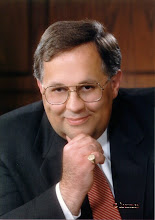Monday, January 19, 2009
The OTHER Rev. Dr. Martin Luther King and President-elect Obama
Friday, January 16, 2009
Keeping An Eye on the Bank's Computer
Rent Parties
Sunday, January 11, 2009
My 2009 America
Monday, January 5, 2009
Caroline Kennedy - Privacy Rights Advocate
Friday, January 2, 2009
Willie's Rant - "Cows"
Hi! This morning, I opened my New York TImes to find that there's another crisis requiring the attention of the government of the people, by the people and for the people.
This time it wasn’t banking, Wall Street, autos or the housing industry with their hands out. No, the industry du jour wanting to feast at the public trough was Milk Cows.
We also heard a story about how things are not going well with the steel industry. Well folks, sorry to say, but get in line. Steel has come a long way in the U.S. over the last 40 years. That’s when it was decided that steel mills were causing Night to occur 24 hours a day in some major cities of the east and that might not be good for folks and after also losing business to the French, Germans, Japanese and Russians, closed them.
Today, the U.S. still imports 30% of its steel and cars are increasingly being made of new forms of plastic, such as the GM Saturn line. American steel companies have been left to make structured steel, stainless and custom stuff including recycled steel. The hope is that the Obama administration will help them write new orders.
Oh yes, about the cows.
Turns out, according to the story that folks around the world aren’t buying milk products like they had been when the world economy was booming. However, cows, well you know, still need to be milked every day, so there is an overabundance of milk. What’s to do? Well according to the story, milk is still being produced at the same rate, turned to powder, housed in government warehouses and paid by, guess who? Yes the American taxpayer.
The cow story also points out that the price of milk has only come down a few cents but that’s probably because it costs too much to reduce the size of the herds over the long term.
So, let’s see if I understand this. People aren’t buying milk products around the world like they were doing, mainly because the price went so high and then the global economy went south. However, instead of reducing the prices and some costs along the way, they have kept the prices at virtually the same level and got Uncle Sam to subsidize it all. As sportscaster Mel Allen used to say, “How about that!”
What a place, America!
© 2009. WBSeebeck





